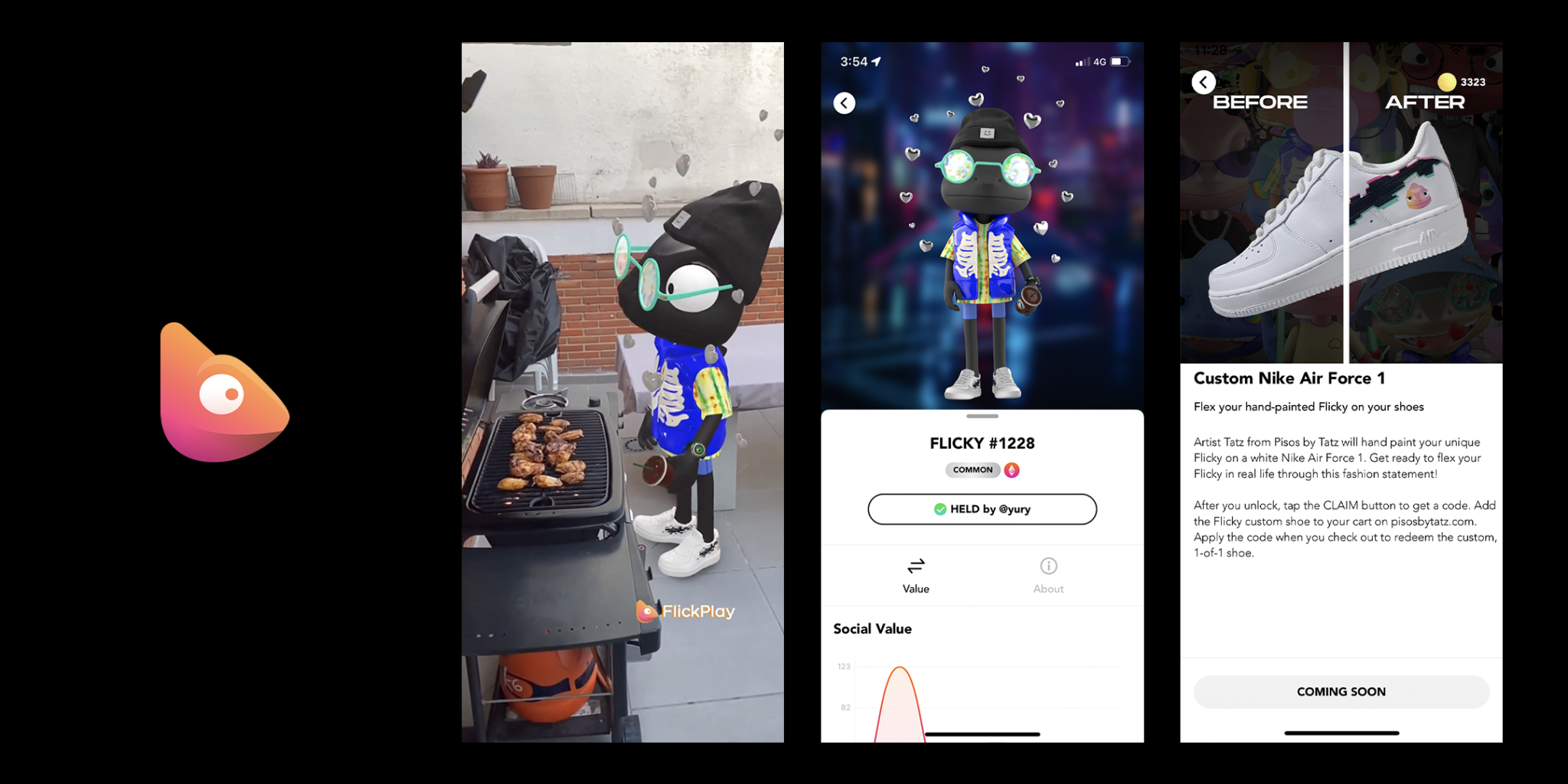Think TikTok and Pokemon Go, but add in NFTs. That’s FlickPlay — a mobile application that combines the user experience of a short-form video social media platform with an element of augmented reality (AR).
Behind the app is founder Pierina Merino, who believes that the digital collectibles we own are storytelling and identity-building tools.
FlickPlay users across three dozen US cities can use the AR camera to create videos and capture NFTs or Flickys — part of the “FlickyGang” avatar collection developed in partnership with The Sandbox. The more NFTs collected, the more rewards earned that unlock redeemable physical items at retailers and locations throughout the city district.

FlickPlay was recently chosen to be one of the six companies to join the current cohort of the 2022 Disney Accelerator Program, a business development program.
Merino spoke with Blockworks about FlickPlay’s long-term vision and its recent decision to onboard NFT brands including Pudgy Penguins NFT project, Snoop Dogg’s The Doggies from The Sandbox, and Spanish artist Edgar Plans’ Lil’ Heroes.
Blockworks: Why did you choose to work with these particular NFT brands? How do you evaluate creators?
Merino: FlickPlay wants to engage with communities and creators that are truly proponents of Web3 and who are genuinely interested in evolving the use case for NFTs and metaverse driven endeavors. We want to work with creators who have cultivated a robust community of Web3 enthusiasts that are heavily involved in solidifying their brands and pushing beyond the JPEG narrative.
Blockworks: How can FlickPlay help users grow their social status and measure the value and utility of their NFTs?
Merino: So our vision is to become the platform that connects digital [intellectual property] to the real world and that overlays a digital layer where Web3 IP and Web2 IP come together and interact within one seamless ecosystem. At the end of the day, it’s all about what you own, and how you choose to tell your story can amplify your connection to those items, to their potential utility.
By creating videos on FlickPlay, the ranking of your NFTs will inherently increase based on the likes, views and Flickcoins the videos receive. This allows NFT holders to speculate not only on the rarity of the NFT collection but also on the NFT’s social ranking.
Owners can position their NFT from a collection as number one in the social ranking. This means that communities will essentially define the value of their NFTs. This is the next generation of content creators. This feature will also allow for communities to storytell with their NFTs in the real world, flexing their NFTs in their favorite locations.
Blockworks: What are some of the challenges with traditional social media platforms that FlickPlay addresses and hopes to improve on?
Merino: FlickPlay has always been authentically involved in creating a space for Web3 and NFT enthusiasts to congregate and push community interaction beyond popular forums like Twitter, Telegram and Discord. Through FlickPlay NFT projects, communities, and creators can truly bring their NFTs to life, grow the popularity and value of their collection through social engagement and create new levels of utility through token-gated competitions and leaderboards.
Blockworks: What advancements need to happen to augmented reality (AR) and virtual reality (VR) technology for more people to start using it on a daily basis?
Merino: AR needs to have a seamless experience to become fully integrated for everyday use with a purpose. What is encouraging users to engage with AR overlays? We already see the use of filters and special geotags on popular social platforms, so the focus needs to be on evolving the technology and software that goes along with augmented reality to make it more efficient for everyday use.
I’ve been very curious to see how the overall ecosystem is thinking about it — what tools are being introduced? What underlying technology or integrations have been built to power the consumer experience?
We shouldn’t be thinking about how we’re going to make people sit at their desks and just be in goggles the whole day. That might happen within a few years from now, but that’s not how we’re going to hit mass adoption.
 blockworks.co
blockworks.co